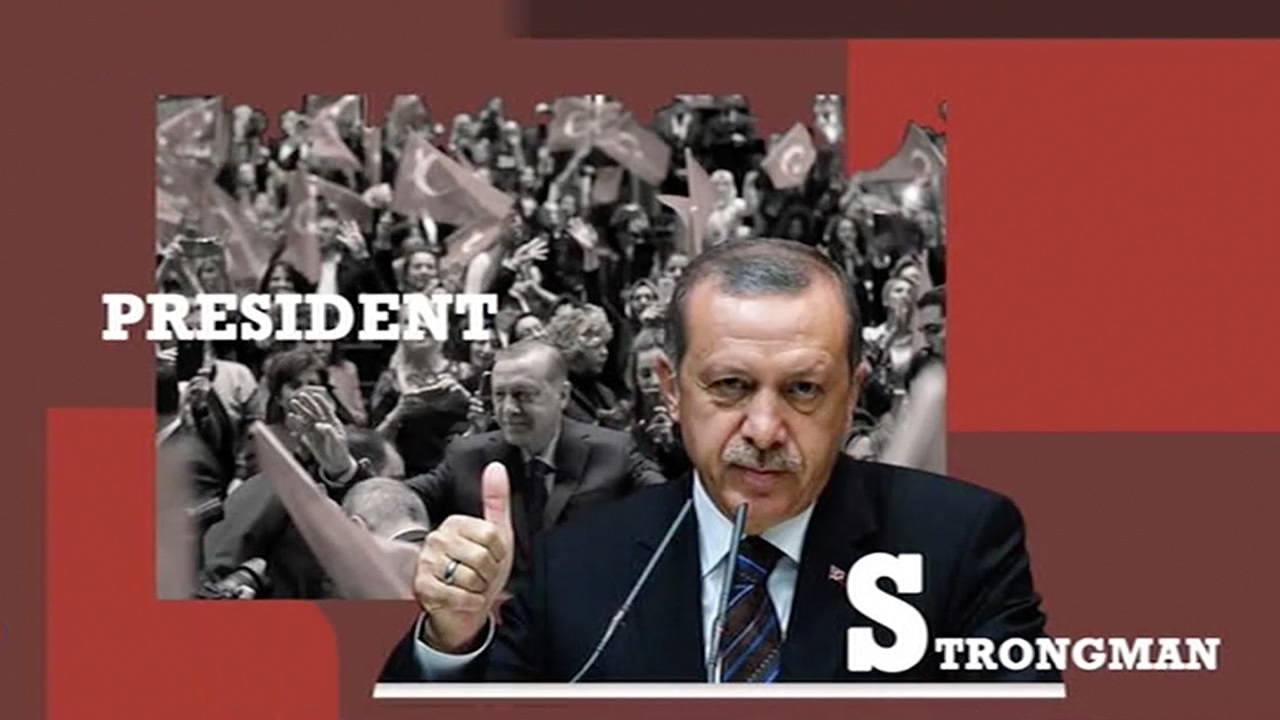
Politics
23:09, 28-Dec-2017
Asia in 2017: Turkish President Erdogan and his ambitions
By Michal Bardavid, Li Linxi, You Jia

As 2017 comes to an end, "Asia Today" presents a seven-day year-end special program called "Asian Faces of 2017." From Dec. 24 to 30, we will review the seven most-influential figures in Asia and examine how their highs and lows, and their hits and misses, impacted their country, the region and the world.

2017 has been a difficult one for Turkey – even more so for its president Recep Tayyip Erdogan. Though he has emerged as a strongman following a referendum in April, conflicts and crises have made his job an even more challenging one.
Increased power after referendum
In April 2017, Turkey voted to shift to a presidential system, a major transformation for the Muslim country and one that would give the Turkish president sweeping new powers - clearly a victory for Erdogan.

Image building: Leader in regional crises and conflicts
In regional affairs, Erdogan also managed to work well with Russia and Iran regarding the Syrian conflict. And Turkey took part as a guarantor state during the Astana peace process in Kazakhstan, which brought some progress, such as the creation of de-escalation zones within Syria.
When the US declared its recognition of Jerusalem as Israel's capital, Erdogan immediately took action and called for an emergency meeting of the Organization of Islamic Cooperation (OIC). The OIC later declared East Jerusalem as the capital of the state of Palestine.
Erdogan had also tried to take on a mediator role during the Qatar crisis in its dispute with Gulf Arab neighbors, visiting all parties and holding talks with leaders on both sides.

Turkey's alliances thrown into doubt
But Erdogan has had troubling relations both with the EU and the US since the beginning of the year. European countries have been criticizing Ankara for human rights issues and the scope of the crackdown that followed last year's failed coup.
The EU also questioned the result of the April vote, saying the process did not meet the standards of the Council of Europe.
In response, Erdogan repeatedly threatened to scrap a refugee deal signed with the EU and said EU membership, which Turkey has pursued for decades, is no longer on the country's agenda.
The US has been another ally that Turkey is at odds with. There are several issues at hand such as the US arming the YPG – a group Turkey sees as a terrorist one - a Syrian Kurdish group, in its fight with ISIL, and the US rejection to extradite Fethullah Gulen, deemed by Ankara as the mastermind of last year's failed coup.

Domestic challenges in politics, security and economy
In Turkey, Erdogan does not remain unchallenged. The country's main opposition is hopeful for the 2019 presidential elections, but says their main obstacle is reaching the masses.
"A large proportion of the media is under the pressure or control of the ruling party. There are only a limited number of newspapers or televisions that are able to broadcast independently," said Kemal Kilicdaroglu, leader of CHP main opposition.
Meanwhile, Erdogan has been dealing with the spillover from the Syrian conflict ever since it began, with over three million refugees currently within Turkey. The conflict created major security issues, especially at the Turkish-Syrian border.
Furthermore, inflation reached to a record high in November and the Turkish Lira has significantly weakened against the US dollar. It will be critical to see whether Erdogan's backers will reflect these economic developments in the polls.

2018 priorities: The economy, terrorism and stronger regional power
Erdogan is likely to deliver new year messages for 2018 which are expected to focus on three key issues: The Turkish economy, the fight against terrorism, and the country as a strong regional power.
"Another big shift that Erdogan will continue to take next year is looking to Russia and the East," said He Wenping, a research fellow at the Institute of West Asian and African Studies at the Chinese Academy of Social Sciences.
"The differences between the EU and Turkey are wider and further. The EU is not happy with Turkey's attitude of refugee taking and Erdogan's domestic rule. For Erdogan, he thought it's not so useful or functional to be a member in the EU. He is looking to the East. Apart from working with Russia, he also wants to improve ties with China," He Wenping said.

Chinese President Xi Jinping (R) meets with Turkish President Recep Tayyip Erdogan at the Great Hall of the People in Beijing, May 13, 2017. /Xinhua Photo
Chinese President Xi Jinping (R) meets with Turkish President Recep Tayyip Erdogan at the Great Hall of the People in Beijing, May 13, 2017. /Xinhua Photo
Steps have been taken to implement the shift.
On Wednesday, Dec. 27, Turkey announced it had finalized the acquisition of the Russian S-400 air missile defense system in a 2.5 billion US dollar deal with Moscow.
In May, Erdogan visited China for a forum on the Belt and Road Initiative (BRI), an infrastructure project proposed by China. He met with Chinese President Xi Jinping and said Turkey is ready to work with China under the BRI framework, to strengthen cooperation in investment, transportation network, infrastructure construction and other fields.
"Turkey wants to be a model country in the Middle East. The ambitions are still there," He Wenping said.
6841km

SITEMAP
Copyright © 2018 CGTN. Beijing ICP prepared NO.16065310-3
Copyright © 2018 CGTN. Beijing ICP prepared NO.16065310-3